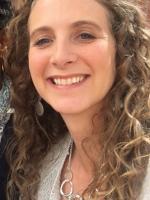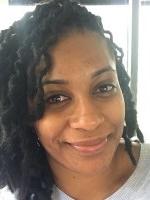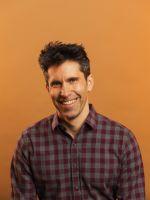

Smart Buy: The Good, Bad, and Ugly in Edtech Selection |
Participate and share : Interactive session
Mindy Frisbee Nicole Langford Dr. Brandon Olszewski
How do you know what good edtech looks like? ISTE is invested in equipping school districts with tools and knowledge to make better choices when purchasing edtech products. In this session, we’ll share new resources to help practitioners evaluate edtech products based on the learning sciences and UX design principles.
| Audience: | Chief technology officers/superintendents/school board members, Teachers, Technology coordinators/facilitators |
| Skill level: | Beginner |
| Attendee devices: | Devices required |
| Attendee device specification: | Smartphone: Android, iOS, Windows Laptop: Chromebook, Mac, PC Tablet: Android, iOS, Windows |
| Topic: | Online tools, apps & resources |
| Grade level: | PK-12 |
| ISTE Standards: | For Coaches: Change Agent
Systems Designer
Facilitator
|
Challenges:
Unprecedented access to edtech in schools - including recent massive growth in edtech use due to COVID-19 as well as expanded internet access through E-Rate.
Lack of reliable market signals for product quality and effectiveness - there do not exist clear markers of “quality” that are universally recognized when it comes to edtech.
Lack of shared definitions of what “good” means - without clear markers but increased pressure and adoption, it is difficult for teachers and edtech decision makers to consistently select “good” edtech.
Purpose:
To introduce educators to some basic rules for deciding what makes an edtech product good.
To get feedback from educators on the tools and resources we’ve created so far, as well as more insight into their edtech selection challenges.
Objectives - Participants will:
Be introduced to learning sciences criteria for edtech selection
Be equipped to immediately use new knowledge about learning sciences when they go out on the expo floor
tbd
tbd


Nicole Langford serves as the Research Associate, Project Manager at the International Society for Technology in Education with the Learning Partnerships team. Nicole comes to ISTE with 7+ years of research administration experience and 3+ years of qualitative research experience. Nicole’s research experience was centered around studying the career decisions of Ph.D. STEM candidates from underrepresented groups, focusing on what drove them towards or away from careers in academia. Through that work, Nicole developed a passion for listening to people talk about their experiences and storytelling through research – a passion she brings to ISTE.

Brandon Olszewski, Ph.D., ISTE’s director of research, leads many of the organization’s program evaluation and research efforts, as well as projects that focus on educational technology, product usability and design, the learning sciences and adult learning. He’s passionate about making research and science practical. Olszewski has over 15 years of experience in program evaluation and applied social science, and specializes in edtech and digital age skills, STEM instruction, social psychology and mixed-methods evaluations that leverage quantitative and qualitative methods. He has managed the implementation and evaluation of innovative projects funded by the National Science Foundation (including ITEST, Cyberlearning, IEECI and Noyce), the U.S. Department of Education, state departments of education (including Oregon’s Earning for a Lifetime program and Alabama’s ACCESS), and private foundations (HP, the Verizon Foundation, Walmart Giving, Chan Zuckerberg Initiative). He has published on topics including program evaluation, educational technology, sociology, special education, workforce development, and social science methodology and psychometrics. His dissertation focused on the relationship between the politics of small schools reform and changes to teachers’ work. He has also been an adjunct instructor in the University of Oregon Department of Sociology.
Digital StoryTelling Playground: Explore Wonderment and Foster Digital Creativity
Helping LGBTQ+ Folx Thrive in Education Spaces
Visual Communication and Graphic Design: Create Engaging Content!